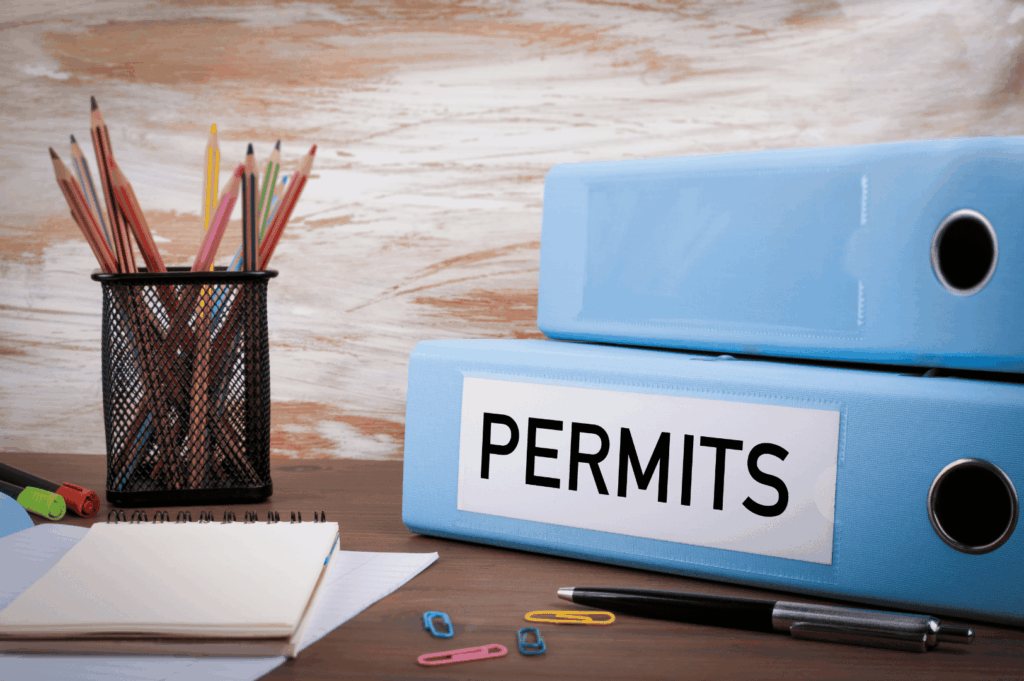Welcome to Singapore! You’ve navigated the move, found your favourite kaya toast spot, and finally figured out that “lah” can be added to almost any sentence. Now, you’re contemplating the next big step many expats take: hiring domestic help. In a city where nearly one in five households employs a domestic helper, it’s a common part of life. But for newcomers, the process can feel like a maze of paperwork, cultural nuances, and financial jargon.
This is where your friendly neighbourhood expat guide comes in. We’ll walk you through everything, from deciding if you’re truly ready for a helper to navigating the legal requirements and building a positive, long-lasting relationship. Knowing where to search for reliable helpers and understanding what really matters in the hiring process can save you time and reduce risk. Think of this as your cheat sheet to making an informed and respectful decision.
Understanding Domestic Help & Domestic Helper Basics in Singapore

Let’s start with the essentials for anyone considering domestic help. Understanding these basics makes the hiring process much smoother, whether you choose to work with a maid agency, an employment agency, or go direct.
Who Can Hire a Domestic Helper or Foreign Domestic Worker?
The Ministry of Manpower(MOM) sets the rules for employers of any domestic helper or foreign domestic worker (FDW) in Singapore. To be eligible, you must:
- Be at least 21 years old.
- Not be an undischarged bankrupt.
- Show you have a stable income to support the costs of employing a domestic worker (think long-term financial security, not just covering the initial fees).
Types of Domestic Help: Live-In Helpers vs. Part-Time Domestic Workers
In Singapore, most people hire a live-in domestic helper, officially known as a Migrant Domestic Worker (MDW) or foreign domestic worker, through a registered maid agency or employment agency. These domestic workers require a full-time work permit and typically live in your home as part of your household team. While part-time cleaners and various services are available, be aware that part-time work arrangements are only legal when supplied through an accredited agency—employing a foreign domestic worker part-time is not allowed by MOM.
The Hiring Process: Maid Agency, Employment Agency, and Transfer Maids

Using a Maid Agency or Employment Agency
- Pros: A licensed maid agency or employment agency manages most of the hiring process for you, including the work permit application, shortlisting suitable candidates, assisting with documentation, and even finding a replacement if your initial match isn’t suitable. They are particularly helpful if you’re hiring your first domestic helper or if you’re unfamiliar with MOM regulations.
- Cons: Service fees for maid agencies and employment agencies can be substantial, usually ranging from S$1,000 up to S$3,000 or more, and may include a loan or salary deductions from your new helper for overseas placement.
Hiring Transfer Maids or Direct Hiring
Cons: You’ll be handling all the paperwork yourself, including the work permit application and MOM compliance. The hiring process can be more hands-on and requires attention to detail, especially for expats new to Singapore.
Pros: Directly hiring transfer maids—domestic workers who are currently in Singapore and seeking a new employer—can reduce the waiting time, help you save on agency fees, and give you more control over the screening process. This option is feasible if you already know a candidate through friends or referrals.
Work Permit & Work Permit Application: Legal Requirements for Employing a Domestic Helper

When hiring a foreign domestic worker in Singapore, it’s essential to understand your legal obligations under the Ministry of Manpower (MOM) regulations. As an employer, beginning with the work permit application process is your first official step.
- Work Permit & Work Permit Application: Every foreign domestic helper must have a valid work permit before starting employment. Submit your work permit application online on the official MOM website. Processing times are usually prompt, but direct access or agency support can assist if you have questions. The work permit application is required for every new helper and subsequent FDW (foreign domestic worker) you wish to employ.
- Security Bond: You’ll need to purchase a S$5,000 security bond when you hire a foreign domestic helper. This bond is a promise to Singapore’s authorities that you’ll meet your responsibilities and can be recovered after the work permit is canceled, provided all requirements are met and no rules are breached.
- Medical Examinations: After arrival, every foreign domestic helper is required to complete a medical examination; this check-up is then repeated every six months. It’s an important step in the process that ensures your household’s health.
- Insurance: Employers must buy medical and personal accident insurance for every helper, with MOM specifying minimum coverage guidelines (for example, at least S$60,000 per year for personal accidents). This coverage not only meets a key obligation but also gives you and your employee peace of mind.
- Levy & Levy Concession: The employer must also pay the monthly foreign domestic worker levy as mandated by MOM. The standard levy rate applies to most employers, but a levy concession is available if you meet certain criteria (such as having young children, elderly family members, or persons with disabilities at home). This concession can significantly reduce ongoing costs.
- Subsequent FDW (Foreign Domestic Worker): If you plan to hire more than one helper for your household, know that different rules and higher levy rates may apply for a subsequent FDW. Always check MOM’s latest guidelines before submitting your work permit application for a new or additional domestic helper.
Your Financial Commitments: Understanding Helper’s Salary and Levy Concession

When it comes to hiring domestic help, employers should be aware that the real cost is more than just agreeing on a helper’s salary—the financial commitment involves a mix of fees, government levy payments, and everyday expenses. Knowing how much money you’ll actually need to set aside each month is essential to avoid surprises down the road.
- Helper’s Salary: As of 2025, the typical helper’s salary for a new domestic helper in Singapore ranges from S$500 to S$700 per month, depending on her experience, demand for services, and country of origin. Experienced transfer maids and those with specialized expertise may ask for higher pay, so be prepared to negotiate.
- Monthly Levy: Employers must pay a monthly levy for each foreign domestic worker. The standard levy is S$300, but eligible employers can benefit from a levy concession, reducing this amount to just S$60—worth checking if you have young children, elderly family members, or persons with disabilities at home. Remember, this levy is a recurring cost and must be factored into your household budget.
Managing domestic helpers in Singapore successfully is about building a positive relationship.
Manage Expectations: Be realistic. Your helper is an employee, not a family member, but she is also a human being living in your home. Treat her with the respect and kindness you would want in any professional relationship.
Set Clear Boundaries: Be clear about house rules, working hours, and expectations from day one. A written agreement or schedule can be very helpful.
Communicate Kindly: Clear and patient communication is vital. Remember that English may be her second language. Avoid sarcasm and be direct but polite.
Cultural Sensitivity: Your helper may be from Indonesia, the Philippines, or Myanmar, among other countries. Take time to learn about her culture and holidays. This small effort can go a long way.
Resources & Templates for First-Time Employers: Employment Agency & Foreign Domestic Worker Essentials

1. First-Timer’s Checklist for Hiring a Foreign Domestic Worker
- Assess your budget, household needs, and readiness to hire—include all recurring fees such as insurance and agency charges.
- Research and select a reputable employment agency or choose to direct-hire (each route has its own costs, manpower requirements, and expertise involved).
- Prepare your interview questions, keeping in mind differing job scopes across foreign domestic worker jobs.
- Review and sign the employment contract and standard Ministry of Manpower (MOM) declaration.
- Complete the work permit application through the MOM portal, with most agencies able to assist you in navigating requirements.
- Purchase the S$5,000 security bond and the required insurance coverage to protect both your family and your helper.
- Prepare your new helper’s living space in your house (room, bed, and storage).
- Design a weekly work schedule and job list that matches your family’s needs.
- Plan your helper’s onboarding to ensure a smooth transition and build a supportive team environment.
2. Useful Government Resources for Employers and Helpers
- Ministry of Manpower (MOM): Your essential authority on foreign domestic worker regulations, work permit details, salary guidelines, and insurance obligations.
- Centre for Domestic Employees (CDE): Provides manpower support, advice, and conflict resolution for both employers and foreign domestic workers.
- Employment Agencies Directory: MOM’s official list helps employers connect with expertise from licensed agencies, ensuring legal compliance and a fair hiring process.
Taking the time to leverage the right resources, expertise, and support channels will make the process of hiring a foreign domestic worker much more manageable. With good planning, an understanding of jobs and manpower needs, and a reputable employment agency on your team, hiring domestic help can be rewarding for both your house and your new employee. Good luck!
For more expat resources, check out our hawker centre guide to discover Singapore’s food paradise, or learn practical tips in our guide to navigating supermarkets.







